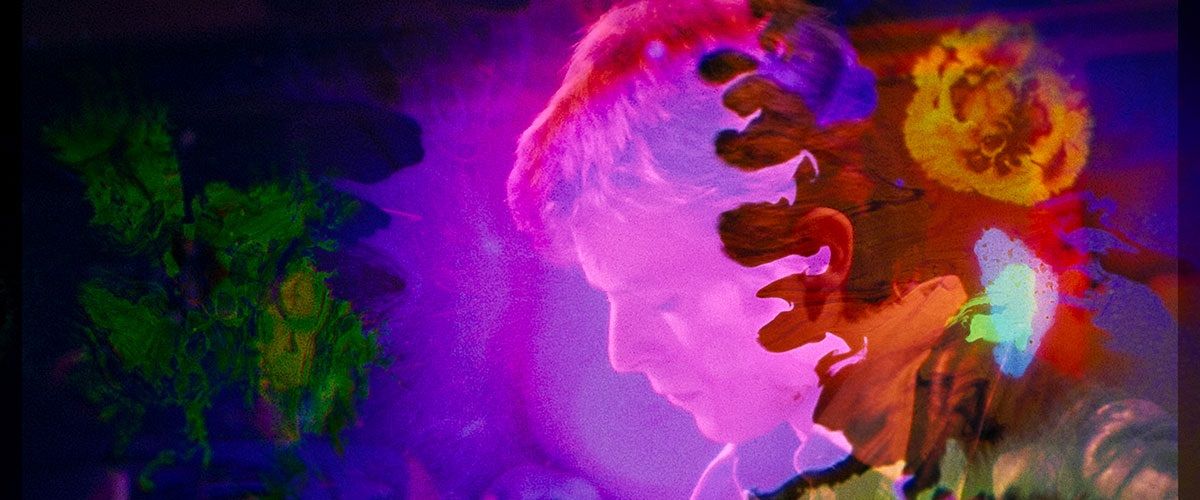By Jonah Naplan
September 24, 2022

CRITIC'S PICK
Moonage Daydream
Review: Experimental David Bowie doc is virtuosic and dense.

By Jonah Naplan
September 24, 2022

“Moonage Daydream” is a new documentary about David Bowie that often doesn’t feel much like a documentary at all. But you already knew that. It’s been the headline of every review of the movie on the internet for the past two or so weeks. It’s been described as discombobulating, nonsensical, and surrealistic. All of those are true. It’s a hugely ambitious, 2 hour and 15 minute movie that definitely has a problem with prioritizing style over substance. But that issue—although fairly major—is rightfully outmatched by the film’s many strengths. For one, the “style” that the substance is replaced with in the first place is mesmerizing, sometimes even riveting. “Moonage Daydream” is one big “BOOM” of a movie, and I really can’t imagine being in the position of Brett Morgen, the writer, director, AND editor. The ways in which he tells the story of David Bowie are magnificent. He makes the decision to show his life entirely through art, editing, and the artist’s own music. Bowie sometimes narrates as images flash across the screen, although none of Bowie’s relatives or close friends are interviewed to talk about his life. It’s not only not your average documentary, but it’s not your average movie, period.
David Bowie was an icon of the 80’s, alongside Elton John and Michael Jackson. I was not alive in that decade (I wish I was however), although I’ve familiarized myself with said decade’s pop culture. But I didn’t actually know much about David Bowie. I knew he was a singer who dressed up in tons of flashy clothes, and wore a lot of makeup when onstage. I also recognized many of the songs in “Moonage Daydream” but I couldn’t name them for the life of me. It may be a bad thing that my knowledge of David Bowie changed only slightly after sitting through an entire 2+ hour movie about the singer, but I don’t feel the intent of the movie was to be informative. It’s merely an art piece, filled with music, and fantastic editing, and David Bowie finds himself in the center of it.
My favorite parts of “Moonage Daydream” contained real television footage of David Bowie on talk shows, sometimes breaking down why he did what he did while onstage, and why he chose to slap on so much makeup, and why he chose to wear the clothes that he did, etc. It really humanizes the persona that was David Bowie, especially when compared to the other abstract two hours of the movie, that are entirely left open for interpretation.
“Moonage Daydream” often feels like a fever dream—”dream” is literally in the title—due to its usage of certain colors, and HIGHLY unnerving quick cut editing that does not halt until the end. It ends up being very, very exhausting, and is one of the reasons why the movie feels too long at certain points. Think about “Elvis” from June. That was a real Baz Luhrmann spectacle. “Elvis” may have been an entire twenty minutes longer than “Moonage Daydream,” but this biopic is—and I really cannot believe I’m admitting this—even crazier than “Elvis.” The first thirty or so minutes of Luhrmann’s film were so high-energy and flamboyant that they were off-putting at first, but eventually you got used to it. “Moonage Daydream” is a little different because I never got used to its visual style. It keeps getting crazier and crazier until a climax in the final twenty minutes of the movie. It’s extremely confident in how it presents itself—much like Bowie when he was in the moment onstage. And I’m actually surprised that the movie never ended up coming off as pretentious. You might think it would be based on the trailer, or if someone described the exact experience of what watching this unique film is like. But the funny thing with that is, there’s no right or wrong answer as to how to do such a thing. There are so many ways you could break down Morgen’s vision. So many scenes or tiny moments you could recall.
It was an excellent choice to make David Bowie’s biopic in this format, because you hear this complaint a lot: The music biopic genre is getting tiring. All of the movies have beefy runtimes, and follow a very similar plot structure. Most of the entries are released in November or December, and are huge Oscar bait for the upcoming season. But I’d like to make a prediction. I don’t think “Moonage Daydream” will win any awards, (although best editing may be in the question) however I think there will be some people deliberating for its sake. I think most people exhausted with musical biopics will find this one acceptable, maybe even good. Because “Moonage Daydream” does not follow a single plot beat that say, last year’s “Respect” did. It doesn’t even really have a plot, for that matter. Sometimes that comes at its disadvantage; the movie almost entirely skips over his career at its peak, and only briefly mentions his romance with Iman. Was that the intent? Another thing I’m unsure about.
Even though I generally enjoy musical biopics, it was refreshing to see this one attempt something different. “Moonage Daydream” broke a boundary for me, that proved certain things in cinema can absolutely be accomplished no matter how ambitious they may seem. Oh! I finally came up with how I would describe this film. If “Bohemian Rhapsody” (2018) was turned into a documentary and then put on crack, that’s “Moonage Daydream.”
"Moonage Daydream" is rated PG-13 for some sexual images/nudity, brief strong language and smoking. It's 135 minutes.
JONAHtheCRITIC.com